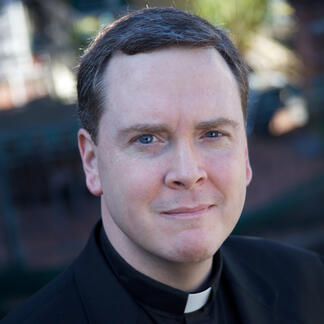
Read Part I and II of this discussion.
Dear Kathleen:
This has been quite a week for American politics—from Denver to the Twin Cities. As you pointed out in your last post, the changes we saw at the Democratic convention (the popularity of Jim Wallis and his progressive faith movement, the prime-time address of Bob Casey, Jr., etc.) show that the Democrats seem to have grown more comfortable with faith or, at the very least, with God-talk. It also seems that Barack Obama has helped to make this happen by clearly stating that faith is important, in private as well as in politics, and that a person should not be barred from the public square simply because his or her political philosophy has its roots in religious faith.
I think this opening up of the Democratic Party has also been a consequence of the demise of the religious right, as E.J. Dionne documents in Souled Out. When the religious right lost its monopoly on faith and politics in the late 1990s, two things happened. Seeing an opportunity, left-wing faith groups began to emerge. But also, more interestingly, there has emerged a chance to build a kind of post-partisan approach to faith and politics; one that shares, as Dionne points out, a common philosophical grounding, if not a common party allegiance. But is America really ready for that? In order for it to happen we would have to recognize that, as Dionne states, religion is both liberal and conservative. Yet there was little of that bi-polar sense in Denver and there’s even less in St. Paul. The Democrats spent most of their time emphasizing the service and economic aspects of faith, while in Minnesota the Republicans have been emphasizing the cultural and life issues.
One other question occurs to me while watching the G.O.P. proceedings. Dionne argues in his book that the religiosity of the Bush presidency was, in many ways, no more or less dramatic than that of other presidents, at least from Carter to Clinton. What was different and problematic about Bush, according to Dionne, was that his style of faith conveyed the sense that “religion was primarily about feeling” and could and should not be subjected to any kind of intellectual or moral inquiry. This meant that Bush never felt the need to “express personal religious views in a way that is accessible to believers and non-believers alike,” which, according to Dionne, he should be expected to do in a secular society. Also, Dionne writes, “a second problem with Bush era religiosity was a sharpening of the argument that religion is closely and necessarily aligned with the entire conservative agenda.”
After watching these first few nights of the G.O.P convention, do you think that, if there is a G.O.P administration come January, 2009, it would be any different in its approach to faith and politics?
Regards,
Matt
Dear Matt,
You have made interesting observations about the way religion and politics played out at the Democratic and Republican conventions. While our religious traditions have both liberal and conservative elements, as E. J. Dionne has said, each of the conventions chose to emphasize the aspect that most fit their political leanings. That is hardly surprising.
But there were a few glimpses of nods to the other side. Barack Obama talked about personal responsibility…and was in fact loudly cheered when he called for fathers to play a greater role in the lives of their children. He also spoke explicitly about abortion…and the policies that would help reduce abortions. In her speech Sarah Palin made reference to the need to work for the “common good,” though she didn’t explained what that entailed. One can only hope that these are the signs of a growing appreciation for the role of faith role in public life.
You ask whether the Republican party will follow the example of George Bush and treat faith as a feeling, or will it come to understand that as politicians in a pluralistic nation, they should be able to talk about our faith in ways that speak to our common humanity, not our personal experience. On that score, the speeches at Republican convention were not promising.
In fact, “feeling” not reasoned argument seemed to rule—not just on faith issues but on politics itself. McCain’s speech dwelt largely on his life story and his personal virtues. He hardly spoke at all about what he would do as president—how would he end the war, how would he improve the economy, deal with the housing crisis, the growing numbers of unemployed Americans, or the fact that under Bush, the small percentage of rich got richer while the rest fell behind. He was all rhetoric—“I will work for you,” without explaining what that work would consist of. Nor was he really clear who that “you” was.
On another note, Palin’s jab about community organizing demonstrated troubling ignorance about the way many Americans actually live, the challenges they face and the selfless work of those who seek to serve. There are many ways to fight for our country. Community organizing is certainly one of them. As we both know, community organizing is integral part of the Catholic social justice tradition both because it is a way to be a “good neighbor” and because it is consistent with notions of subsidiarity. The social good is achieved most effectively when we focus our efforts closest to the need.
Community organizers help those who are left out and left behind assert their rights, participate in the political system and obtain the help that they need for their families whether it be education, unemployment benefits, job training, home heating assistance…or to get a park cleaned up or a recreation center built.
Finally, I was intrigued by the fact that the Republicans had trouble including an abortion reduction plank in their platform. What do you make of that?
All best,
Kathleen
Dear Kathleen,



